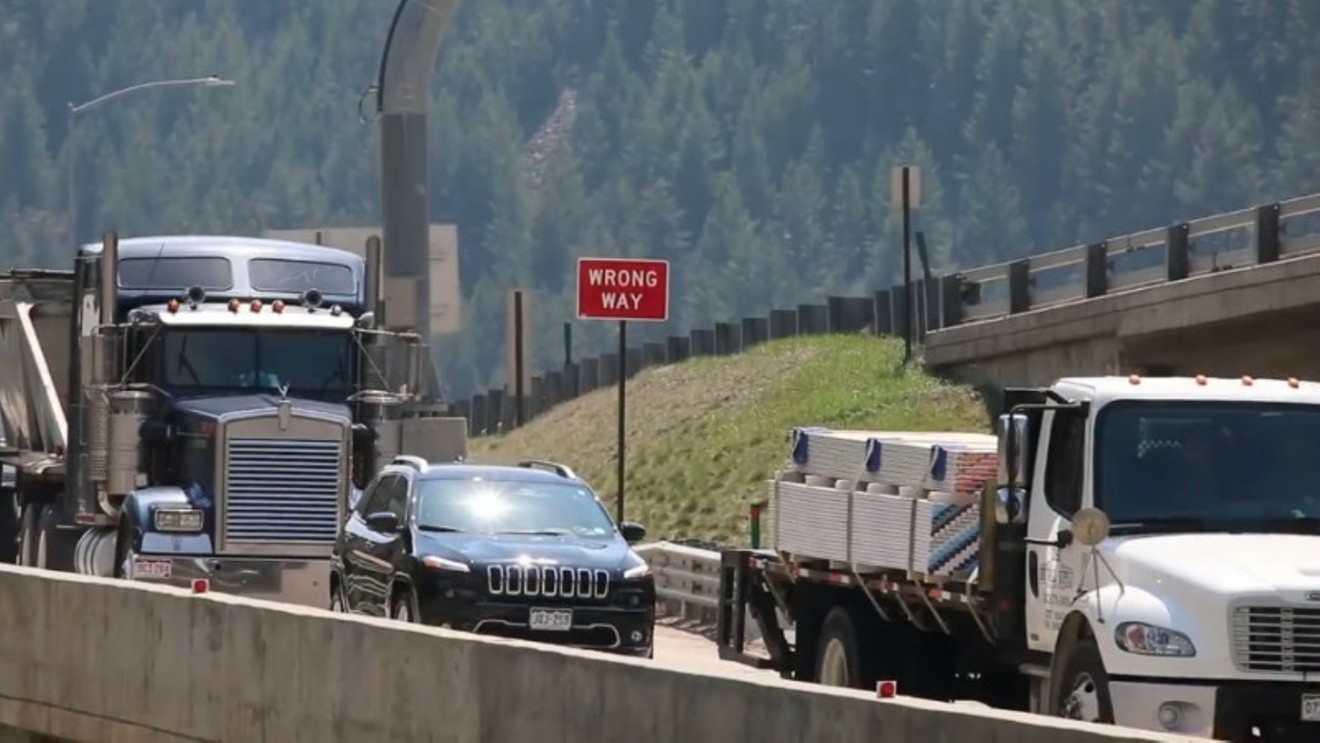In addition to a series of major construction projects ready to break ground in the upcoming weeks and months, the Colorado Department of Transportation is also floating a proposal to upgrade a stretch of eastbound Interstate 70 from Floyd Hill to the Veterans Memorial Tunnels outside Idaho Springs, even though it hasn't yet identified the $550 million the undertaking is expected to cost. And that's not to mention new express lanes from Empire to Idaho Springs with a separate $80 million price tag.
This scenario raises a series of questions, including: Where will the money come from? Wasn't the giant transportation bill passed by the Colorado General Assembly during the 2018 legislative session supposed to fund projects like this one? And if not, why not?
Amy Ford, director of CDOT's communications office, understates the situation significantly when she says, "It's fairly complicated."
SB 18-001, informally known as Senate Bill 1, "effectively added about a billion dollars into the transportation system through a series of one-year transfers from the general fund," Ford explains. "And it will also support the payback of bonds from Senate Bill 267" — a 2017 measure dubbed "Sustainability of Rural Colorado" that included a major transportation component.

A stretch of Interstate 70 that would be widened under the CDOT proposal.
Colorado Department of Transportation
Indeed, the CDOT backlog currently sits at about $9 billion.
"The big picture," Ford maintains, "is that we have something called a development plan list that includes things like I-70 and Floyd Hill, as well as other projects all over the state. It's a fairly substantive list, and we won't have the funds yet to really tackle a lot of the projects on it, including Floyd Hill. Senate Bill 1 is a great start, but we'll be getting $350 million this year from it, and the money would be completely eaten up by that one project," with another $200 million still needed.
Then there are the wild cards. The Denver Metro Chamber of Commerce has submitted language for a series of possible 2018 ballot issues, and even though they've yet to be approved, they connect to Senate Bill 1.
According to Ford, "the Denver Chamber has a variety of different options involving a sales-tax increase to raise money for transportation. They're going to make a decision about whether or not it's something they want to do, but the proposals range from a .5 cent sales tax to a one cent sales tax that could effectively provide a $6 billion lift. And all of this was considered in Senate Bill 1. If a ballot issue passes, they'll have different criteria — and if it doesn't pass, it would allow CDOT to bond for different projects."
CDOT isn't actively lobbying for any of the ballot issues, "and we won't," Ford stresses. However, "we are always open to additional resources so that we can really tackle the safety and motility issues that we have. Whether those are federal dollars or a ballot issue or what the legislature recently did, we think any additional resources coming into the system are good for Colorado."
About 15 percent of the dollars set aside by Senate Bill 1 "will be dedicated to multi-modal projects: public transit, bike trails, trails for pedestrians, etc.," Ford continues. "Any potential ballot issue would have the same kinds of dedicated funds. And this is really a statewide issue. The Denver metro area collects about 60 percent of taxes statewide, but we really need to support each other in matters of transportation. If transportation needs are addressed in Durango, it will feed commerce and tourism into the Four Corners area. And if there are improvements in Colorado Springs, it will help Fort Collins. Even though we tend to think locally, we're all tied together."
In the meantime, Ford stresses, "we're doing the best we can with the dollars that we have. But the gas tax hasn't changed since 1991, and most of our funds go to maintaining the system instead of adding new capacity. And this is an issue in every part of the state. Everyone has their Central 70 or their C-470 or their Floyd Hill — pieces that are critical to their economic vitality."
Whatever happens, Ford believes that funding for Floyd Hill and other projects like it "will come from a variety of sources: Bridge Enterprise dollars, dollars from safety programs, federal grant programs we can apply for. When we start tackling mega-projects like this, it takes some time."













